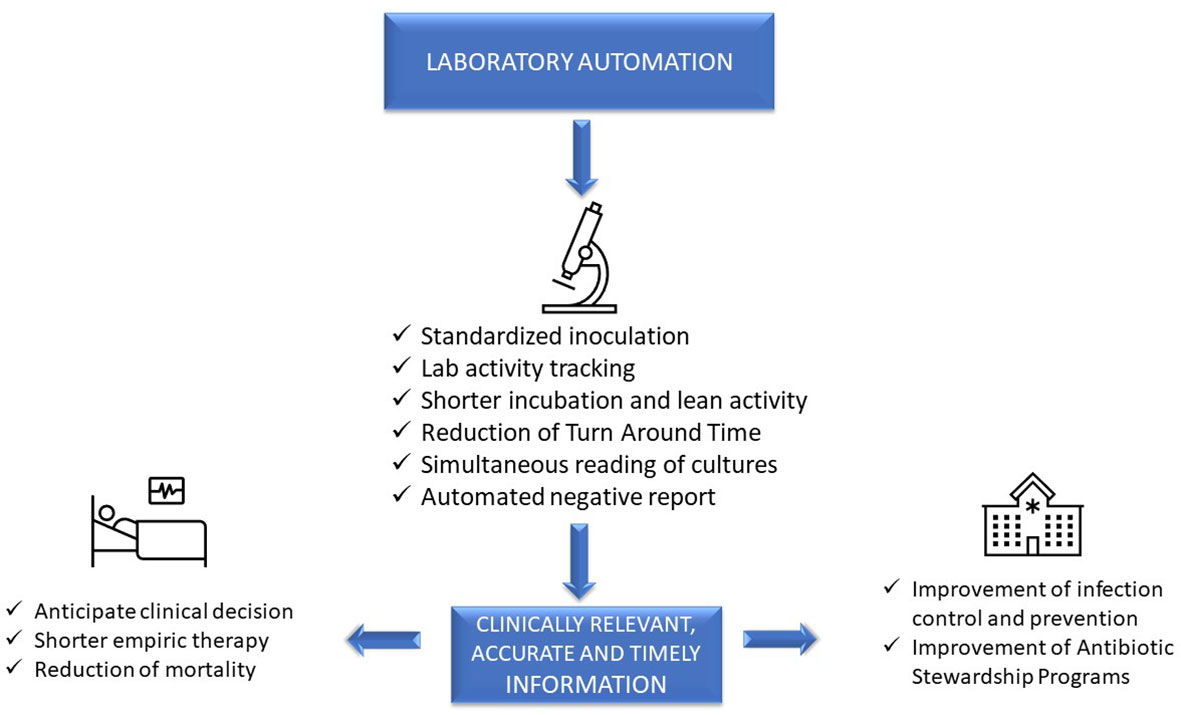Difference between revisions of "Template:Article of the week"
From LIMSWiki
Jump to navigationJump to searchShawndouglas (talk | contribs) (Updated article of the week text) |
Shawndouglas (talk | contribs) (Updated article of the week text) |
||
| Line 1: | Line 1: | ||
<div style="float: left; margin: 0.5em 0.9em 0.4em 0em;">[[File: | <div style="float: left; margin: 0.5em 0.9em 0.4em 0em;">[[File:Fig1 Mencacci FrontCellInfectMicro2023 13.jpg|240px]]</div> | ||
'''"[[Journal: | '''"[[Journal:Laboratory automation, informatics, and artificial intelligence: Current and future perspectives in clinical microbiology|Laboratory automation, informatics, and artificial intelligence: Current and future perspectives in clinical microbiology]]"''' | ||
[[Clinical laboratory|Clinical diagnostic laboratories]] produce one product—[[information]]—and for this to be valuable, the information must be clinically relevant, accurate, and timely. Although diagnostic information can clearly improve patient outcomes and decrease healthcare costs, technological challenges and [[laboratory]] [[workflow]] practices affect the timeliness and clinical value of diagnostics. This article will examine how prioritizing laboratory practices in a patient-oriented approach can be used to optimize technology advances for improved patient care. ... ('''[[Journal:Laboratory automation, informatics, and artificial intelligence: Current and future perspectives in clinical microbiology|Full article...]]''')<br /> | |||
''Recently featured'': | ''Recently featured'': | ||
{{flowlist | | {{flowlist | | ||
* [[Journal:Registered data-centered lab management system based on data ownership security architecture|Registered data-centered lab management system based on data ownership security architecture]] | |||
* [[Journal:FAIR Health Informatics: A health informatics framework for verifiable and explainable data analysis|FAIR Health Informatics: A health informatics framework for verifiable and explainable data analysis]] | * [[Journal:FAIR Health Informatics: A health informatics framework for verifiable and explainable data analysis|FAIR Health Informatics: A health informatics framework for verifiable and explainable data analysis]] | ||
* [[Journal:Guideline for software life cycle in health informatics|Guideline for software life cycle in health informatics]] | * [[Journal:Guideline for software life cycle in health informatics|Guideline for software life cycle in health informatics]] | ||
}} | }} | ||
Revision as of 16:31, 13 November 2023
Clinical diagnostic laboratories produce one product—information—and for this to be valuable, the information must be clinically relevant, accurate, and timely. Although diagnostic information can clearly improve patient outcomes and decrease healthcare costs, technological challenges and laboratory workflow practices affect the timeliness and clinical value of diagnostics. This article will examine how prioritizing laboratory practices in a patient-oriented approach can be used to optimize technology advances for improved patient care. ... (Full article...)
Recently featured:










